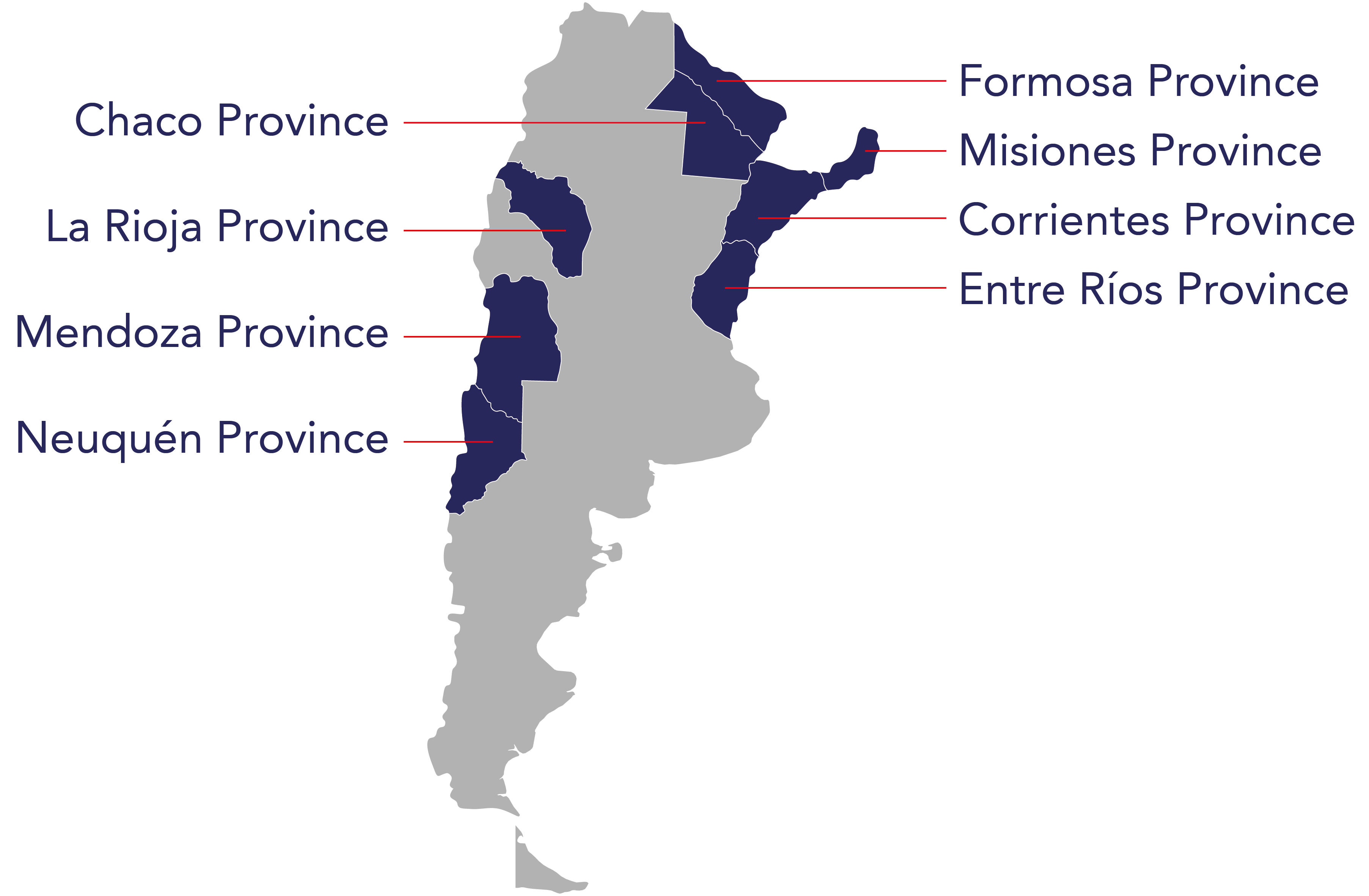Countries:
Argentina
Status:
Completed
Sector:
Finance
Providing technical assistance to financial institutions to create new sources of financing for sustainable projects in Argentina.
The project aimed to mobilise a total of USD 200M from local banks and financial institutions (FIs) across eight provinces, investing approximately USD 25M per region within five years. Some of these FIs are also expected to use sustainable bond mechanisms to finance these lines and provide financial inclusion to vulnerable groups.
The project was implemented in five different regions, with valuable ecosystems and forest areas heavily affected by climate change, ecosystem degradation and deforestation. The economies of these regions are largely agricultural and livestock-based, making the populations very vulnerable to these changes. In this context, the project highlighted the required transformations towards a low-carbon, sustainable economy and a more social and gender-inclusive society in each region.
The growth of sustainable production models and practices in Argentina is limited due to funding constraints. Although FIs worldwide offer specific credit lines that align their core business with social and environmental objectives, many still do not have the knowledge and resources to develop such tools.
To reach its purpose, the project objectives were to:
The project was delivered by SMS S.A in partnership with Coninagro (Confederación Inter-cooperativa agropecuaria).
“It has been very useful for us to have worked with SMS and to continue to do so. For us, it has been highly productive – we have incorporated new tools, received recommendations, and received elements of analysis that we have found very useful for us.”
Deputy Manager of Investment Banking, Finance Department of Banco Nació
“We find it very helpful and positive to have a space to dialogue directly with representatives of the banks about the design of sustainable credit lines.”
Agustín Noriega
Fundación Gran Chaco

financial institutions actively participated in the project and made progress in the technical assistance proposals
interviews with key actors from public, private, and civil society sectors in eight provinces held as part of the project’s mapping process
sustainable investment opportunities worth more than USD 2.2bn were identified, primarily in agriculture, construction, industrial, and renewable energy sectors
raised through three social and sustainable bonds issued by Sumatoria. Supported by the project, it financed impactful projects, including those led by women entrepreneurs
As a result of the project activities, the following results and progress were achieved:
sustainable productive investment opportunities headed by organisations that promote gender equity were highlighted by the project, potentially reaching 7000 women
sustainable and inclusive investment opportunities and business models were identified in Formosa
capacity-building activities targeted vulnerable rural producers and women, including financial education workshops and value chain working groups
Rural women attended the financial education workshop, covering different banking products, loans and the application processes
The project focused on vulnerable and disadvantaged groups in north-east Argentina, particularly in the northern provinces with the lowest levels of development, social inclusion, and environmental sustainability. The two main targeted groups were vulnerable rural producers, including small familiar producers and indigenous communities engaged in sustainable agricultural activities, and women entrepreneurs, encompassing SMEs led by women in traditional sectors or rural indigenous women with craftworks or other projects.
Key GESI achievements included:

The project identified a number of key learnings and next steps:
A video detailing some of activities carried out and giving voice to participating financial institutions
Watch VideoUK PACT (Partnering for Accelerated Climate Transitions) is a unique capacity-building programme. Jointly governed and funded by the UK Government’s Foreign, Commonwealth and Development Office (FCDO) and the Department for Energy Security and Net Zero (DESNZ) through the UK's International Climate Finance, it works in partnership with countries with high emissions reduction potential to support them to implement and increase their ambitions for tackling climate change.
© Copyright 2025 UK PACT Privacy Notice Cookie Policy